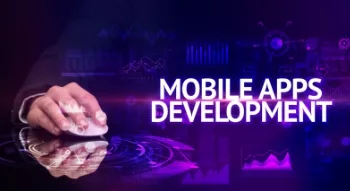As there’s an increase in the number of users of iPhones, iPads, and other Apple devices paves the way for the demand for iOS development in the software industry. According to Bankmycell, iOS’s global market share is 28.36%. That makes it a dire need for iOS developers with expertise in developing high-quality, aesthetically pleasing and highly functional, and customizable for the Apple environment.
Now, finding and hiring the right candidate for developing your iOS app is daunting. This is because you must assess their technical prowess and familiarity with iOS frameworks and tools and evaluate their soft skills, such as problem-solving and communication skills. You also need to determine whether they align with your company’s culture and values. So, to hire iOS app developers for your project, you need to conduct a thorough technical interview that may highlight each candidate’s strengths and weaknesses.
We’ll provide some pointers and best practices in this blog post on conducting successful technical interviews for iOS developers. We’ll talk in detail about the following major questions:
- What tools and expertise are necessary for iOS development?
- What are some typical queries asked in iOS developer interviews?
- How should a potential interviewer get ready for an iOS developer interview?
- How should I, as an interviewer, assess the iOS developer interview?
Q#1: What tools and expertise are necessary for iOS development?
You must understand the abilities and resources required for iOS development before you begin interviewing individuals. This will assist you in creating interview questions and assessing interviewee responses.
The following are some of the most crucial knowledge and resources for iOS development:
Programming Languages
There are primary programming languages used for iOS development, Swift and Objective-C. Swift was introduced in 2014 a quick, modern, and expressive programming language released by Apple. Swift is the successor to Objective-C, an older version of object-oriented programming language utilized for iOS development. Even though the majority of iOS applications are developed in Swift, Objective-C is still utilized for legacy applications and compatibility with some frameworks. Therefore, an ideal iOS developer must have expertise in both these programming languages and be able to go back and forth between them whenever needed.
Xcode
Xcode is the integrated development environment (IDE) for iOS development. This IDE provides a plethora of tools and functionality to create, execute, test, and deploy iOS mobile apps. Moreover, Xcode also supports numerous libraries, frameworks, and extensions, optimizing the development process. An experienced iOS developer must know enough about Xcode’s user interface, features, functionality and various options.
Frameworks
These are groups of prewritten lines of code that offer capabilities and functionality for particular tasks or areas. For iOS apps, UIKit, for instance, is a framework that provides user interface elements and interactions. Foundation, Core Data, Core Animation, Core Location, MapKit, AVFoundation, and others are additional frameworks. An excellent iOS developer should be able to use these frameworks effectively and efficiently to build apps that live up to user expectations and requirements.
Drag-And-Drop Components
Using drag-and-drop components, storyboards are visual tools allowing app developers to plan and build user interfaces. Additionally, they allow developers to specify how their apps’ navigation and changes between various screens or views work. A good iOS developer should be able to use storyboards to design user interfaces that are simple to use, responsive, and compliant with Apple’s design standards.
Playgrounds
These interactive settings let programmers create and run Swift code in the present without compiling or executing an application. They are helpful for learning new Swift features, developing features, testing algorithms, and experimenting with novel ideas. A competent iOS developer should be able to use playgrounds to experiment with new concepts and hone their coding abilities.
Git
Git is a popular open-source version control system that allows developers to coordinate, collaborate and manage various project versions and monitor changes to their code. A skilled iOS developer should be proficient in using Git to establish repositories, branches, commits, merges, pull requests, and other related tasks.
These are but a few of the tools and abilities required for iOS development. You may also search for additional talents like unit testing, continuous integration (CI), data structures and algorithms, design patterns, etc., depending on the particular project or position you are hiring for.
Q#2: What are some typical queries asked in iOS developer interviews?
You can begin developing your interview questions based on them once you have identified the critical abilities and resources required for your project or role. These inquiries are designed to gauge candidates’ expertise in many facets of iOS development and their ability to use that knowledge and solve problems.
You can ask a variety of interview questions, including the following:
Technical inquiries:
These probe the candidates’ theoretical familiarity with ideas or tenets connected to iOS development. For instance, “In Swift, what’s the difference between a class and a struct?” or “What advantages do storyboards have over code for designing user interfaces?”
These inquiries examine the candidates’ abilities or practical knowledge of using tools or frameworks for iOS development. Questions like “How do you use Xcode to create a new project?” or “How do you use UIKit to create a table view with custom cells?” are two examples.
Coding inquiries:
These inquiries call for the candidates to write, execute, or debug Swift or Objective-C code for a particular task or issue. For instance, “Write a Swift function that reverses a string” or “Fix the memory leak in this snippet of Objective-C code.”
Behavioral questions:
These inquiries gauge a candidate’s suitability for your organization’s culture and values, personality, attitude, communication, and teamwork. Inquiries like “How do you approach learning new skills or technologies?” or “Tell me about a time when you faced a challenge or conflict in a previous project” are two examples.
You can modify the level of difficulty and depth of your interview questions based on the seniority of the position and its complexity. You can also pose your questions using a variety of formats or techniques, such as:
Before inviting prospects for an in-person interview, candidates are frequently screened by phone or video chat. You can evaluate the candidates’ verbal communication and understanding abilities by asking technical, practical, or behavioral questions over the phone or via video call.
During an in-person interview, candidates are frequently tested on their coding and problem-solving abilities using a whiteboard. You can ask candidates coding-related questions and then have them write their answers on a whiteboard while logically and rationally justifying them. Additionally, you can assess their comprehension and optimization abilities by posing follow-up questions.
Take-home assignment:
This is a typical method of evaluating candidates’ coding and practical abilities in a more realistic setting. You can assign the candidates a brief project or assignment that calls for the usage of particular iOS development frameworks or tools, and you can set a deadline for their submission of the completed work. Then, you can evaluate their coding standards, etiquette, documentation, testing, etc.
These are merely a few illustrations of typical iOS developer interview questions and techniques. Depending on your requirements and preferences, you can also utilize different kinds of questions or techniques.
Q#3: How should a potential interviewer get ready for an iOS developer interview?
As an interviewer, you must be well prepared for the interview with your potential iOS developer. In that way, you will be able to ask the right questions, assess your potential employee objectively, and hire iOS app developers for the job. Here are some tips that will help you get prepared for the interview:
Review the job description and requirements:
First, you need to carefully go through and review the iOS developer job description and requirements for the project you are hiring for before you start interviewing the candidates. This will assist you in determining the crucial abilities and resources for iOS programming that you need to check out and assess.
You need to assess the candidates’ résumé and portfolios before inviting them for an interview. This will give you in-depth information about their previous work experience, professional background, skill set, and other attributes that could make them an ideal candidate for the job. This will enable you to modify your interview expectations and queries in light of their credentials.
Prepare your interview questions and criteria:
You should prepare your interview questions and criteria for each type of question (technical, practical, coding, behavioral) based on the job description, requirements, and candidates’ credentials and portfolios. Decide on the length of your interview as well as its type (phone, video, whiteboard, or take-home project).
Prepare your interview environment and equipment:
Your interview environment and tools should be ready in accordance with the format and methodology of your interview. For instance, you should have a dependable phone or internet connection, a headset or microphone, etc., if you are conducting a phone or video interview. You should also choose a location that is peaceful and comfortable. Make sure you have a big enough whiteboard, markers, erasers, etc., if you’re conducting a whiteboard interview. If you are giving a take-home assignment, make sure you have a set of instructions that is clear and comprehensive, a platform or tool to submit and receive the assignment (like GitHub, for example), etc.
Q#4: How should I, as an interviewer, assess and hire iOS app developers?
Based on their responses to your questions and criteria, you must, as the interviewer, assess each applicant’s performance in the iOS developer interview. The following advice can help you as an interviewer evaluate an iOS developer interview:
Utilize a scoring system:
You should utilize a scoring system that allows points or ratings to each question and criterion in order to prevent bias and inconsistencies in your judgment. For instance, you can grade each candidate’s response on a scale of 1 to 5 (where 1 is poor and 5 is exceptional) based on standards like accuracy, thoroughness, efficiency, clarity, inventiveness, etc. The scores for each question category (technical, practical, coding, and behavioral) can then be added and compared between applicants. Depending on the position or project, you can also utilize a weighted average to give particular question types or criteria greater weight.
Use feedback and comments:
In addition to using a grading system, you should offer feedback and comments based on your observations and impressions of each candidate’s response. You could, for instance, highlight the candidate’s accomplishments, criticize their flaws, recommend areas for development, provide clarification, etc. Additionally, you can add comments and feedback to justify your ratings or scores for each question or criterion.
Utilize several interviewers:
You should also have numerous interviewers participate in the iOS developer interview process to eliminate prejudice and inconsistent evaluations. Separate interviewers can ask technical, practical, coding, and behavioral questions, or you can have one interviewer ask every question while another observes and evaluates the candidate’s performance. The best applicant for the position or project can then be decided upon after comparison and discussion between you and the other interviewers.
These are merely a few pointers on assessing an interview for an iOS developer. You can also employ different techniques or devices based on your preferences and needs.
Conclusion
Finding and hiring the best talent for your team can be made easier by conducting successful technical interviews for iOS developers. You can more efficiently and successfully plan, prepare for, and analyze your iOS developer interviews using the advice and best practices we’ve provided in this blog article.
Need a helping hand in developing your iOS app?
With VinnCorp, you can hire iOS app developers as quickly as 24 hours. We offer Silicon Valley standard iOS app developers the utmost expertise in numerous app development tools, frameworks, and technologies. When you hire through VinnCorp, rest assured that your iOS mobile app project is in the safe hands of reliable iOS developers.
Consult with an iOS app developer today.



